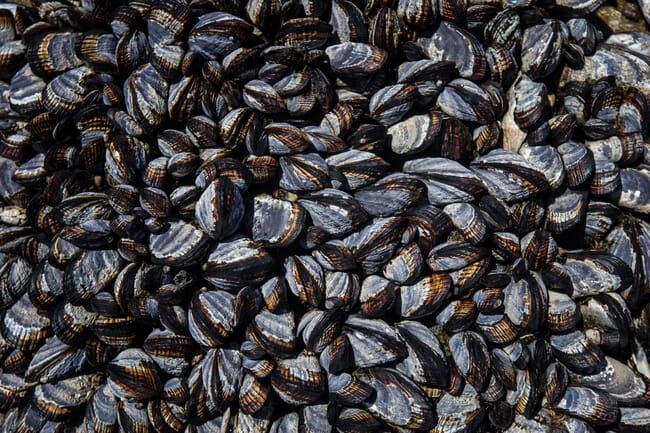Contagious cancers have only so far only been discovered in three types of animals – Tasmanian devils, dogs and shellfish. However, the new study shows that cancers can be more rapidly spread through shellfish than previously believed.

In the new study, the researchers collaborated with marine biologists in South America and Europe. They found similar cases of contagious cancers in different mussel species along the coasts of Argentina, Chile, France, and the Netherlands. In some mussel colonies, the cancer was so contagious that it had infected 13 percent of the population.
The study’s authors, from the Columbia University Irving Medical Center (CUIMC), collaborated with marine biologists in South America and Europe. They found similar cases of contagious cancers in different mussel species along the coasts of Argentina, Chile, France, and the Netherlands. In some mussel colonies, the cancer was so contagious that it had infected 13 percent of the population.
Following the publication of the results in eLife. CUIMC Newsroom interviewed Prof Stephen Goff, an expert in transmissible cancers at Columbia University and a co-author of the paper, to learn more about how cancer can spread in shellfish colonies separated by thousands of miles of water, and how that could help us better understand cancer metastasis in other organisms.
Previous studies from Dr Goff’s lab, found that in four separate species of clams, cancer cells could travel through ocean water from one clam to another to spread the disease. Surprisingly, the researchers found that some contagious cancer cells could "infect" a different species of clam.
In the new study, according to CUIMC, “the most surprising finding came when the researchers compared French and Chilean mussels. Both populations contained cancer cells that were genetically identical, despite being separated by vast distances. Even Chilean mussels in the Pacific Ocean and French mussels in the Atlantic had identical cancer cells. In other words, the cancer cells had somehow travelled more than 7,000 miles across hemispheres and oceans to infect other organisms. The cancer clone had even spread into species of mussels that were different from the species in which the cancer first arose.”
The scientists suspect these were spread such large distances by mussels that had attached themselves to the hulls of ships.
Research on how contagious cancers spread in shellfish will help biologists develop more effective plans to protect marine life. And though transmissible cancers in shellfish don't pose a threat to humans, studies of these cancers could be valuable to medical researchers.
"There are parallels between how cancers spread in the ocean and how cancer cells metastasise within humans," says Goff. "Learning more about contagious cancers in shellfish could help us find ways to prevent the metastatic spread of tumours to new sites in the body."



